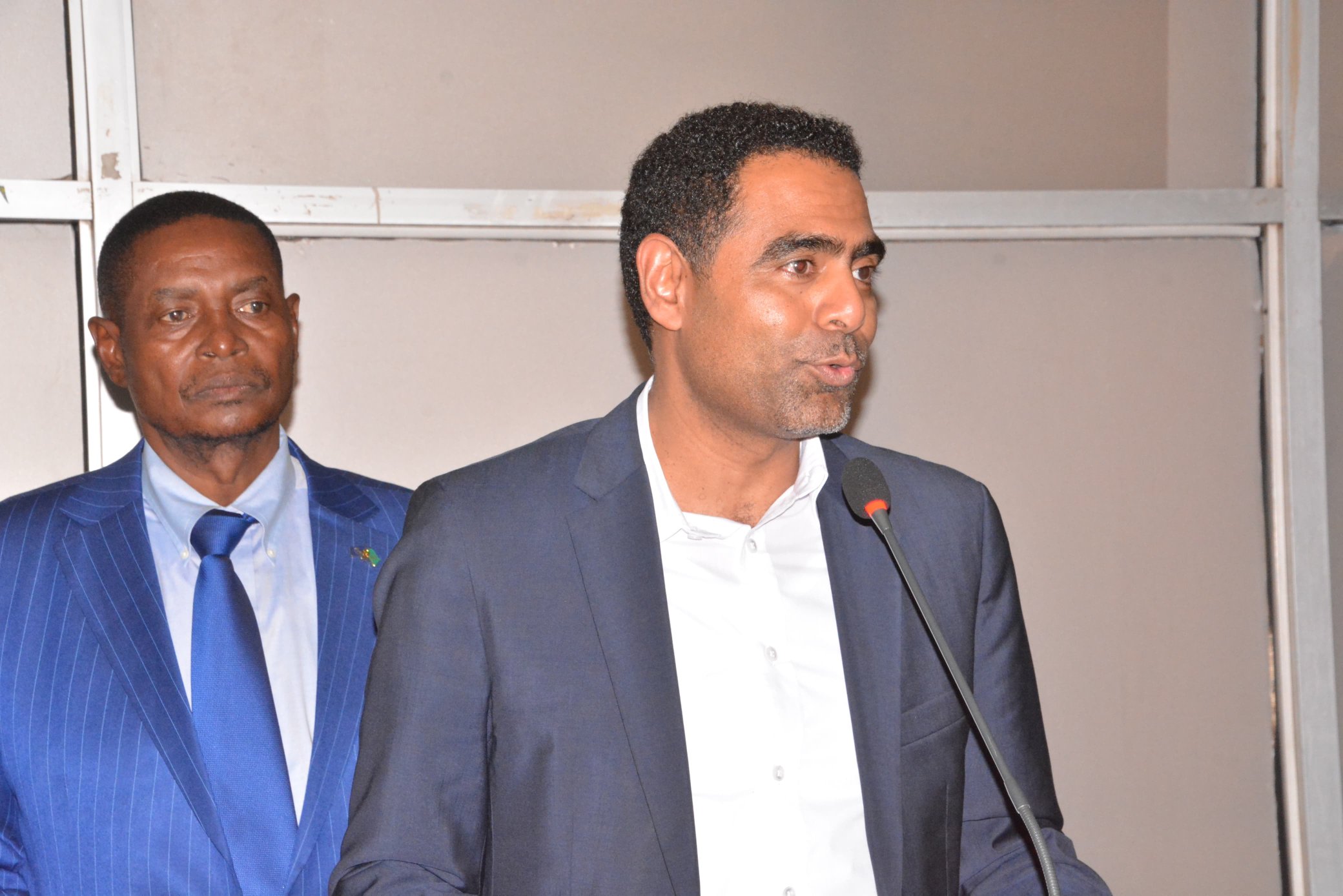Gadget puts power to control token use in your hands

For a long time, Kenyans have been hoping for an electricity metre system that would automatically feed the tokens once purchased instead of physically keying them to the metre.
This hope is finally becoming a reality if the innovation of Smart Metre by Morris Mbetsa, CEO of Numeral IOT company is adopted by Kenya’s electricity supply company Kenya Power. IOT stands for Internet of Things
Mbetsa says the idea was inspired by his own challenge when he was out of the town and his neighbours had to put up without security lights.
In 2018, while travelling out of Nairobi, he left the house in a hurry and forgot to switch off most of his electronics. They ended up consuming all the electricity tokens within a few days.
The security lights to the apartment he lived in apparently served his neighbours and the depletion of his token meant they had to stay without the lights, at least until his return.
In a quick fix to save the situation, he purchased power tokens through his phone, forgetting that he needed to physically access the metre to feed in the units for him to have the power back.
“My metre was inside my house and no one had access to it. I asked myself, what if I could just buy the tokens and they automatically load into the metre. And that is how the idea was born,” he says.
Mbetsa decided to come up with a solution, and four years later, he has what many Kenyans have been silently praying for.
The smart metre allows someone to buy the tokens from wherever they are, which would then feed themselves directly into the metre without having to physically access it.
“This is relevant, especially when one is not around or when people at the house such as house helps cannot operate the metre,“ he says.
The smart metres are designed in a way the customer can get a real-time update on their electricity usage and one can be able to determine their consumption rate.
Shareable tokens
Additionally, the metre owners are at liberty of sharing tokens with another metre whenever a need arises.
“This also gives an option for a tenant to transfer tokens from their previous house to their new home contrary to the current metres where tokens cannot be transferred,” he explains.
The device comes with a safety measure called appliance safety. In case the power comes back after a blackout, it first runs a safety check on whether the electricity is safe before it switches itself on. Since the metre is connected to the phone via an application, one can also switch off and on their electricity instead of having to switch it manually from the metre.
“You can also set up a target of how much you want to spend on tokens and it will guide you on how to achieve the target,” he notes.
The metre will allow the power company to know when someone purchases a token, thus filling the loopholes that have been causing them losses.
Mbetsa says the Smart Metres are made up to the international standards, making them suitable for exportation and can be used in any country.
The innovation and development of the smart metres cost at least Sh15 million as his company had to import some equipment. The best part of producing the gadget locally is the affordability of the metres as well as protecting the Intellectual Property of the innovator.
The Numeral IOT factory can produce 3,000 smart metres per day, but it targets to produce between 12,000 to 20,000 metres if the innovation is adopted.
“We anticipate major sales in the coming months, therefore we are gearing up for mass production of the equipment, “he says.
Already they have gotten approval to pilot the metres in Tanzania after signing an agreement with its government.
They are, however, waiting for approvals from Kenya, while other countries in Africa are pushing to be among the pioneer implementers of this new technology.
Mbetsa adds that having undergone various certifications from international regulators and government agencies, they are optimistic of being adopted within the country first before they export their expertise elsewhere.
“We are at an early stage of talks with Kenya Power. One fact is that we can produce these metres at a cheaper cost compared to the imported ones,” he says.
Other innovations
Numeral IOT has also innovated vehicle speed governors and tracking systems, an innovation that earned them recognition by Kenya’s Vision 2030 Innovation Awards Competition in 2011.
The speed governors and tracking systems were Mbetsa’s first commercialised innovations, having previously produced innovations that left him poorer instead of wealthy.
At the onset of Covid-19, the company developed affordable thermo guns for checking the temperature.
In 2019, Mbetsa invented a flying taxi, which earned him popularity and also changed his course of innovation. He says aside from publicity, the innovation that cost him millions of shillings did not earn him any income.
“After that, I decided to turn my innovations into money-making business and opened a factory where we manufacture many electronic gadgets,“ he notes. The factory now has close to 50 designing and assembling workers.










